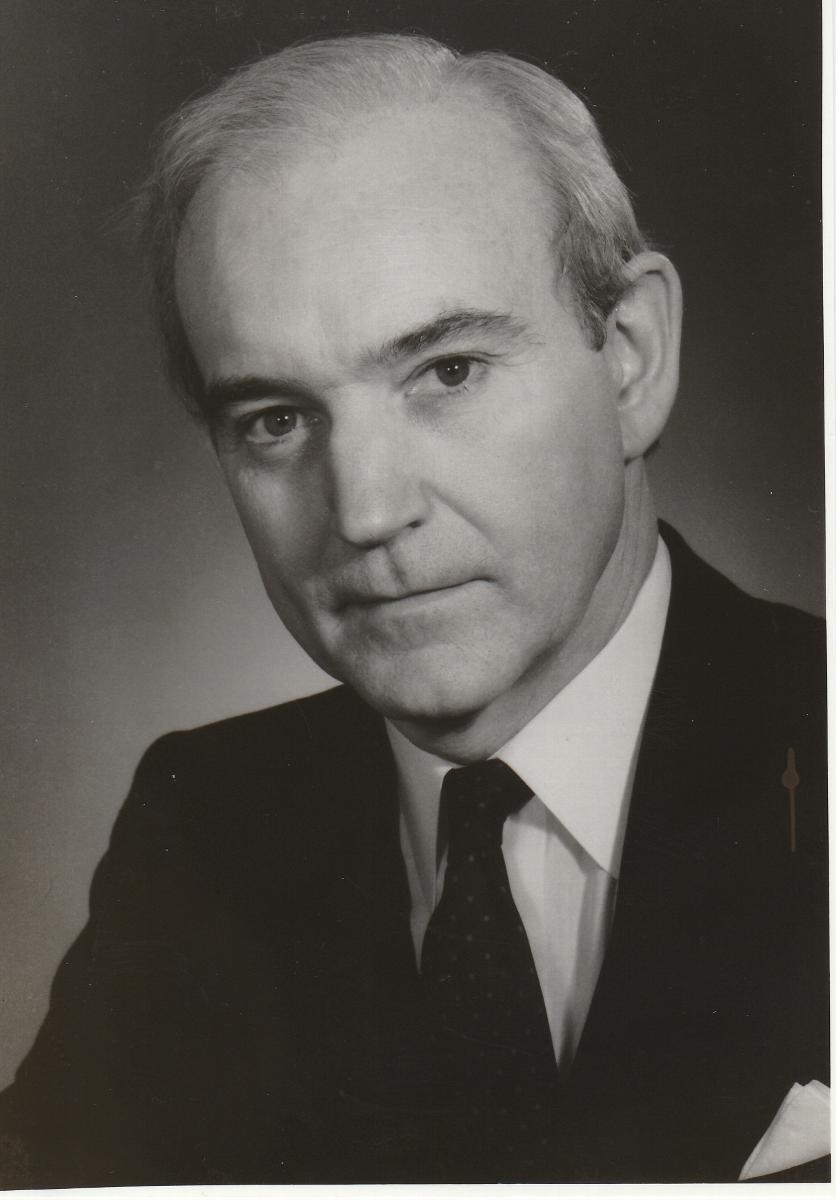Obituary: Tom Campbell

 Tom Campbell, born July 28, 1934.
Tom Campbell, born July 28, 1934.
Tom was born during the Great Depression when his family lived in a log cabin in the remote settlement of Gogama in Northern Ontario. There was no electricity, running water or indoor plumbing. The water came from an outdoor hand pump and the cabin was heated by a wood stove. Because of the isolation he had no playmates for the first five years of his life. When he was five, his family moved to Chapleau. Chapleau had electricity, running water and the house had central heating and indoor plumbing. Tom thought about it and concluded that they must now have become rich. He retained that attitude for the rest of his life. Tom grew up through elementary and high school in Chapleau, a small town known for its sense of community. He worked his way through college by driving a truck and a bulldozer. After college, he taught high school Chemistry and Physics at North Halton District High School which he always said was one of his hardest jobs ever, and always thereafter had great respect for conscientious teachers and for the work ethic of rural students. He then got a job with a temporary project at the head office of the Government of Ontario in Toronto, after which he planned to go to law school. The project proved so interesting that he never did go to Law School. With the economy booming it was the golden era of post war prosperity and growth in Ontario, when the modern infrastructure of the public health system, education, community college, university and many other public systems were created or vastly expanded to meet the needs of a burgeoning economy. He found the work the most challenging that he could imagine and for the rest of his life he always believed that the public sector was a high calling. He thought of himself as the most fortunate of people for having the opportunity for such interesting and significant work and to be able to work with such expert and professional colleagues. It was truly a golden age when the public service and the elected cabinet worked within a climate of mutual respect, trust and communication. Partly as a result of good governance, the Ontario economy went through an amazing period of growth and job creation and the public sector was rated as one of the leanest and most professional anywhere. Eventually, after filling many roles, Tom was appointed Associate Secretary of Cabinet for Policy, then Deputy Minister of Northern Affairs, Deputy Minister of Health, Deputy Treasurer of Ontario and finally Chairman of Ontario Hydro. During his tenure both as head of Treasury and Finance and of Ontario Hydro, both agencies maintained the highest possible credit ratings, triple A. In addition, hydro rates were the second lowest in North America after Quebec Hydro which was based on water power while Ontario with much less water power, was forced to rely on nuclear power for the additional large supply of clean electricity required for one of the fastest growing economies in the world.
Tom remained low key in spite of the senior posts he occupied and this may have been because he always thought of himself as a working class kid, from a small town in Northern Ontario. In his working life Tom gave a high priority to providing less senior employees with the opportunity to develop their skills by gaining wider work experience. He was also committed to improving equal employment opportunities for women at a time before that issue received as much attention. He once dismissed a senior executive for lack of cooperation at a time when Tom was inaugurating an affirmative action program. He had lifelong commitment to equality among all groups. What Tom enjoyed most in addition to having the opportunity to do significant work on behalf of others, was being able to help poorer areas by opening up access roads and air strips in remote areas, establishing the Northern Corps of Teachers to bring qualified teachers to the North and providing electricity supplies to where none existed. He was present at negotiating the intergovernmental agreement establishing French Language Immersion programs in Canada, which has enabled generations of children to enjoy such wonderful opportunities. While having a private dinner one evening with Jules Léger, who was then Federal Deputy Minister of State, and who later became Governor General of Canada, they sketched out the framework of an agreement on the back of an envelope. Much of his work was accomplished behind the scenes and he seldom received public attention.
After retiring he worked in the private sector and was a member of and chaired a charitable health investment trust which had received a legacy of fifty million dollars and which the trust was able to grow to over one hundred and thirty million dollars, dedicated to public health projects in Ontario but which also included assisting in the funding of an Aids Program and Hospital in one of the poorest countries in Africa.
Tom enjoyed writing and having articles published to encourage debate on topics such as Public Health Care and Energy. During 2016 and 2017, because he had more time, he published more substantial articles, one on the subject of evolution entitled “The Long Apprenticeship, How Evolution, Children and Time Created Human Values”. To celebrate Canada’s one hundred and fiftieth anniversary he published an article entitled “Canada’s Surprising Role in the Fight Against Slavery” which was described by an editor as “Inspirational”. It also explains the background of why Canada has become so different from the US. It should be required reading for anyone with an interest in the story of Canada. [Both articles are available free on request from Mary at [email protected]]
Until the last few months Tom was in perfect health. In fact when he was eighty–two he was clocked while skiing at 104.5 km/h which was not unusual for him after learning to ski as a kid on the slopes in Chapleau. He always felt that he had been so fortunate with good health, a wonderful partner and family of whom he was extremely proud, as well as such an interesting and challenging career and life, that he could not possibly have any regrets no matter what befell. He also remembered the teachings of Socrates that death would be the best dreamless sleep that any of us would ever have. Hence, he had no fear of death. When he contracted a painful disease, he chose quality of life as opposed to life extension at all costs and eventually, and gratefully, took advantage of Medical Assistance in Dying, which he saw as a wonderfully humanitarian addition to the health system which he had once led. His wish for the future would be for the extension to other humanitarian causes such as advance directives in wills, to provide for future lack of the capacity for informed consent. He saw these as important human rights issues and humanitarian causes.
On a personal level Tom and his wife Mary believed that they had an obligation to give back to the community. In 2016, they established The Mogford Campbell Family Chair in Paediatric Clinical Neuroscience at Sick Children’s Hospital. Anyone wishing to support this worthy cause, which is engaged in ground breaking clinical research and treatment, may make a donation by contacting SickKids Foundation at 416-813-6166 or online at www.sickkidsfoundation.com/donate (“designate to MOGC” in the Comments box).
Tom was the beloved husband of Mary Mogford and was loved and bonded for life with his children John Stuart Campbell and Alexandra Campbell. He was the adored “Danda” to Alexandra’s three children Zita, Clara and Duncan.
There will be a memorial visitation on Saturday, September 16, 2017 from 1pm to 4pm at the Newcastle Funeral Home, 386 Mill Street South, Newcastle, Ontario L1B 1C6 (phone 1-877-987-3964).
Family and friends are invited to Tom and Mary’s home following the visitation.

